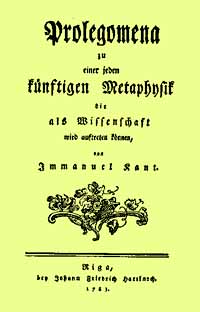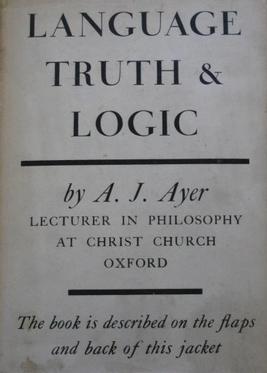Reason is the capacity of applying logic consciously by drawing conclusions from new or existing information, with the aim of seeking the truth. It is associated with such characteristically human activities as philosophy, religion, science, language, mathematics, and art, and is normally considered to be a distinguishing ability possessed by humans. Reason is sometimes referred to as rationality.

A fallacy is the use of invalid or otherwise faulty reasoning in the construction of an argument that may appear to be well-reasoned if unnoticed. The term was introduced in the Western intellectual tradition by the Aristotelian De Sophisticis Elenchis.
Deductive reasoning is the process of drawing valid inferences. An inference is valid if its conclusion follows logically from its premises, meaning that it is impossible for the premises to be true and the conclusion to be false.
Critical thinking is the analysis of available facts, evidence, observations, and arguments in order to form a judgement by the application of rational, skeptical, and unbiased analyses and evaluation. The application of critical thinking includes self-directed, self-disciplined, self-monitored, and self-corrective habits of the mind; thus, a critical thinker is a person who practices the skills of critical thinking or has been trained and educated in its disciplines. Philosopher Richard W. Paul said that the mind of a critical thinker engages the person's intellectual abilities and personality traits. Critical thinking presupposes assent to rigorous standards of excellence and mindful command of their use in effective communication and problem solving, and a commitment to overcome egocentrism and sociocentrism.

The Critique of Pure Reason is a book by the German philosopher Immanuel Kant, in which the author seeks to determine the limits and scope of metaphysics. Also referred to as Kant's "First Critique", it was followed by his Critique of Practical Reason (1788) and Critique of Judgment (1790). In the preface to the first edition, Kant explains that by a "critique of pure reason" he means a critique "of the faculty of reason in general, in respect of all knowledge after which it may strive independently of all experience" and that he aims to decide on "the possibility or impossibility of metaphysics". The term "critique" is understood to mean a systematic analysis in this context, rather than the colloquial sense of the term.

Hume's fork, in epistemology, is a tenet elaborating upon British empiricist philosopher David Hume's emphatic, 1730s division between "relations of ideas" and "matters of fact." As phrased in Immanuel Kant's 1780s characterization of Hume's thesis, and furthered in the 1930s by the logical empiricists, Hume's fork asserts that all statements are exclusively either "analytic a priori" or "synthetic a posteriori," which, respectively, are universally true by mere definition or, however apparently probable, are unknowable without exact experience.
Inductive reasoning is any of various methods of reasoning in which broad generalizations or principles are derived from a body of observations. This article is concerned with the inductive reasoning other than deductive reasoning, where the conclusion of a deductive argument is certain given the premises are correct; in contrast, the truth of the conclusion of an inductive argument is at best probable, based upon the evidence given.

Logical reasoning is a mental activity that aims to arrive at a conclusion in a rigorous way. It happens in the form of inferences or arguments by starting from a set of premises and reasoning to a conclusion supported by these premises. The premises and the conclusion are propositions, i.e. true or false claims about what is the case. Together, they form an argument. Logical reasoning is norm-governed in the sense that it aims to formulate correct arguments that any rational person would find convincing. The main discipline studying logical reasoning is logic.
"Two Dogmas of Empiricism" is a paper by analytic philosopher Willard Van Orman Quine published in 1951. According to University of Sydney professor of philosophy Peter Godfrey-Smith, this "paper [is] sometimes regarded as the most important in all of twentieth-century philosophy". The paper is an attack on two central aspects of the logical positivists' philosophy: the first being the analytic–synthetic distinction between analytic truths and synthetic truths, explained by Quine as truths grounded only in meanings and independent of facts, and truths grounded in facts; the other being reductionism, the theory that each meaningful statement gets its meaning from some logical construction of terms that refer exclusively to immediate experience.

Prolegomena to Any Future Metaphysics That Will Be Able to Present Itself as a Science is a book by the German philosopher Immanuel Kant, published in 1783, two years after the first edition of his Critique of Pure Reason. One of Kant's shorter works, it contains a summary of the Critique‘s main conclusions, sometimes by arguments Kant had not used in the Critique. Kant characterizes his more accessible approach here as an "analytic" one, as opposed to the Critique‘s "synthetic" examination of successive faculties of the mind and their principles.

Language, Truth and Logic is a 1936 book about meaning by the philosopher Alfred Jules Ayer, in which the author defines, explains, and argues for the verification principle of logical positivism, sometimes referred to as the criterion of significance or criterion of meaning. Ayer explains how the principle of verifiability may be applied to the problems of philosophy. Language, Truth and Logic brought some of the ideas of the Vienna Circle and the logical empiricists to the attention of the English-speaking world.
An inquiry is any process that has the aim of augmenting knowledge, resolving doubt, or solving a problem. A theory of inquiry is an account of the various types of inquiry and a treatment of the ways that each type of inquiry achieves its aim.
Verbal reasoning is understanding and reasoning using concepts framed in words. It aims at evaluating ability to think constructively, rather than at simple fluency or vocabulary recognition.
The analytic–synthetic distinction is a semantic distinction used primarily in philosophy to distinguish between propositions that are of two types: analytic propositions and synthetic propositions. Analytic propositions are true or not true solely by virtue of their meaning, whereas synthetic propositions' truth, if any, derives from how their meaning relates to the world.
A priori and a posteriori are Latin phrases used in philosophy to distinguish types of knowledge, justification, or argument by their reliance on experience. A priori knowledge is independent from any experience. Examples include mathematics, tautologies and deduction from pure reason. A posteriori knowledge depends on empirical evidence. Examples include most fields of science and aspects of personal knowledge.

The following outline is provided as an overview of and topical guide to thought (thinking):
An argument is a series of sentences, statements, or propositions some of which are called premises and one is the conclusion. The purpose of an argument is to give reasons for one's conclusion via justification, explanation, and/or persuasion.
Philosophy of logic is the area of philosophy that studies the scope and nature of logic. It investigates the philosophical problems raised by logic, such as the presuppositions often implicitly at work in theories of logic and in their application. This involves questions about how logic is to be defined and how different logical systems are connected to each other. It includes the study of the nature of the fundamental concepts used by logic and the relation of logic to other disciplines. According to a common characterisation, philosophical logic is the part of the philosophy of logic that studies the application of logical methods to philosophical problems, often in the form of extended logical systems like modal logic. But other theorists draw the distinction between the philosophy of logic and philosophical logic differently or not at all. Metalogic is closely related to the philosophy of logic as the discipline investigating the properties of formal logical systems, like consistency and completeness.
As the study of argument is of clear importance to the reasons that we hold things to be true, logic is of essential importance to rationality. Arguments may be logical if they are "conducted or assessed according to strict principles of validity", while they are rational according to the broader requirement that they are based on reason and knowledge.